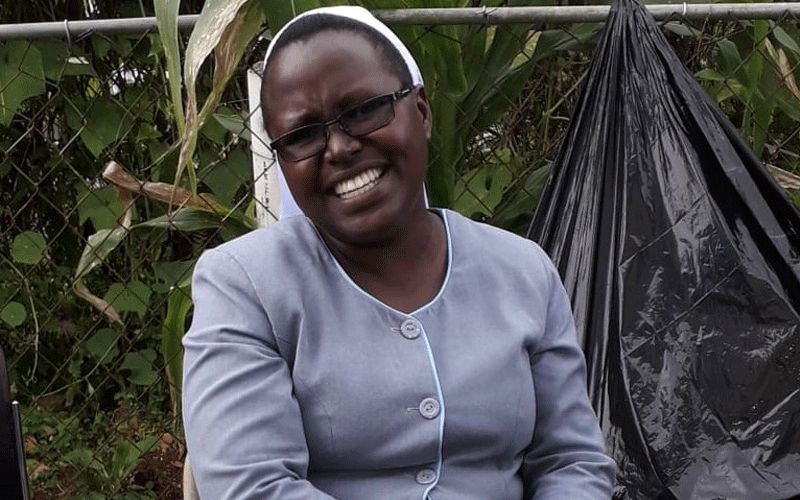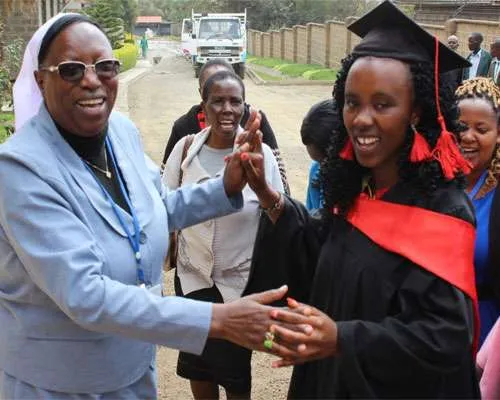“When those infected with HIV died, they were buried by well-wishers in polythene bags. People feared being infected by getting in contact with the corpses,” said Sr. Florence.

In the Caribbean Island nation of Jamaica, however, fear of stigma makes people shy away from getting tested for the virus, thereby increasing the probability of infections in a country characterized by what Sr. Elizabeth has referred to as “dangerous merry-making” that sometimes puts them at the danger of spreading the virus.
The 2001 study that examined drug abuse in Jamaica by the National Council on Drug Abuse (NCDA) found that 60 percent of the Jamaican population use marijuana, tobacco and alcohol. Further studies have also linked use of drugs to high prevalence of HIV. The statistics indicated that rigorous HIV-related data among Jamaica’s populations, especially the homeless population, is limited.
All is not gloom for the HIV patients in Jamaica, especially those living within the confines of the Catholic Diocese of Mandeville where the project Sr. Elizabeth is coordinating has been running since 2001. Through this project, the nuns who do not discriminate have gradually won the trust of the patients.
(Story continues below)
“Over time, the patients have come to learn about the program run by the Catholic Church and how we uphold discreteness. They know that they can find acceptance here,” says Sr. Elizabeth who joined the program in September 2019 after working on different social work projects in Kenya following her initial profession as a member of ASN in 2010.
At Mandeville, the ASN nun works with 150 HIV patients, also referred to as clients, to offer a “comprehensive HIV/AIDS Education” to the patients who the nun says still consider HIV as “a very big thing in their lives.”
The clients attend monthly support group meetings where they share their experiences in hushed tones, only surrounded by those who understand their daily struggles. They then share a meal and part ways at the end of the meeting with enough food to sustain them for weeks until their next meeting.

Those who have been chased away from their homes because they are HIV positive are resettled in new houses that are constructed through the program Sr. Elizabeth coordinates along with Sr. Helen Kisolo, a nurse in charge of the clinic where the clients go for treatment.
The project also runs small income generating projects including goat keeping and poultry and also gives loans to those interested in business. So far, the project has helped 100 people start poultry farming while 20 have been enrolled for the goat project. Some 10 people have been given a financial boost to start small businesses.
With the outbreak of COVID-19, the Sr. Elizabeth says she conducts house visits to distribute food to the clients who no-longer attend meetings due to the regulations that prohibit social gatherings in a bid to contain the spread of the virus.

“There is a sister who works at the Mandeville clinic to treat our clients when they are down with opportunistic infections,” Sr. Elizabeth says referencing her compatriot, Sr. Helen Kisolo, also a member of ASN.
She adds, “I move around a lot yet I haven’t been able to cover half the households. Our clients are mostly very poor people and they can’t afford the bus fare to come to us.”
The home-based care project is the only one of its kind in the diocese that works closely with government health facilities in the country to serve clients who are spread across three regions in Mandeville.
“The government has its own support groups managed by government social workers while we have our own groups. But we sometimes host joint talks and seminars,” says Sr. Elizabeth, adding that government hospitals also refer some of the patients who test HIV positive to the Catholic-run program.
Travelling long distances to reach clients is not the only challenge that Sr. Elizabeth grapples with.

“There is very high insecurity in this side of the country, and it could be attributed to the dangerous use of drugs, she says, adding, “Earlier in the year, some people stole our car from our residence and I had to stay for two months without doing any outreach activity. I only resumed work after we bought another car because my clients come from very far.”
Passion for social work and the fact that she is the only one on the program in the whole diocese keeps Sr. Elizabeth moving on despite the challenges.
"I am grateful for the support I receive from two sisters in our ASN community here in Jamaica, Sr. Helen Kisolo and Sr. Agnes Mwongela," she says.
“There are times I really feel overwhelmed and then I remember that many people look upon me to wake up every day and to remind them that their lives matter. And in my experience as a social worker, I have always been passionate about helping people,” the Kenyan-born nun says.
Agnes Aineah is a Kenyan journalist with a background in digital and newspaper reporting. She holds a Master of Arts in Digital Journalism from the Aga Khan University, Graduate School of Media and Communications and a Bachelor's Degree in Linguistics, Media and Communications from Kenya's Moi University. Agnes currently serves as a journalist for ACI Africa.













